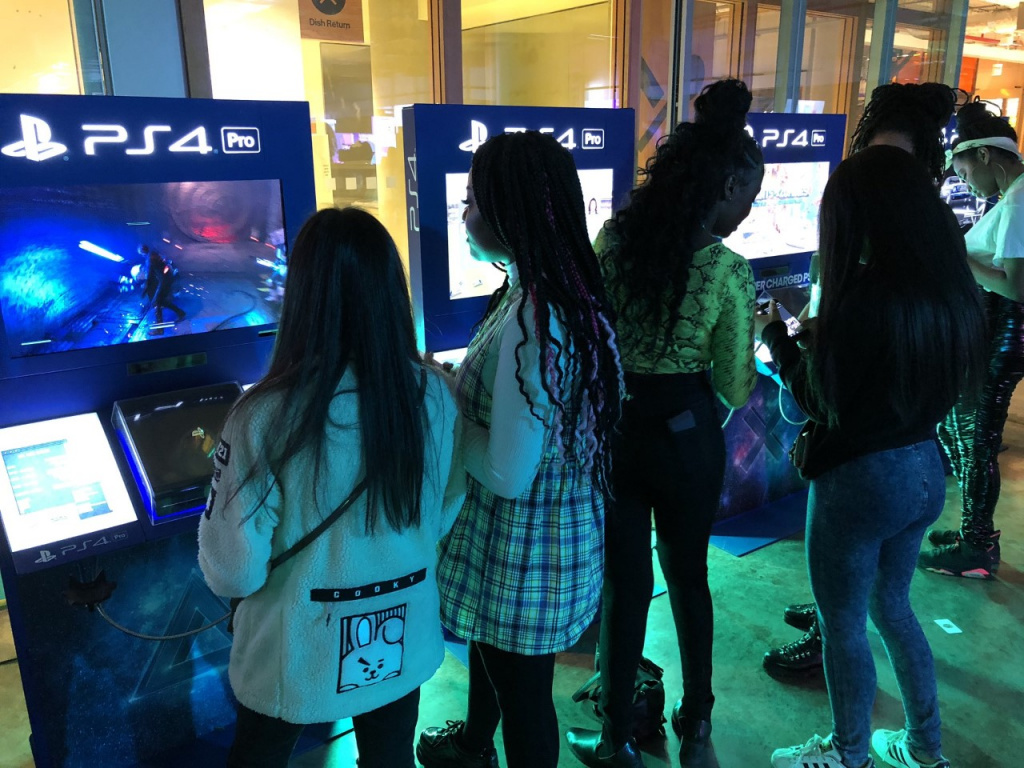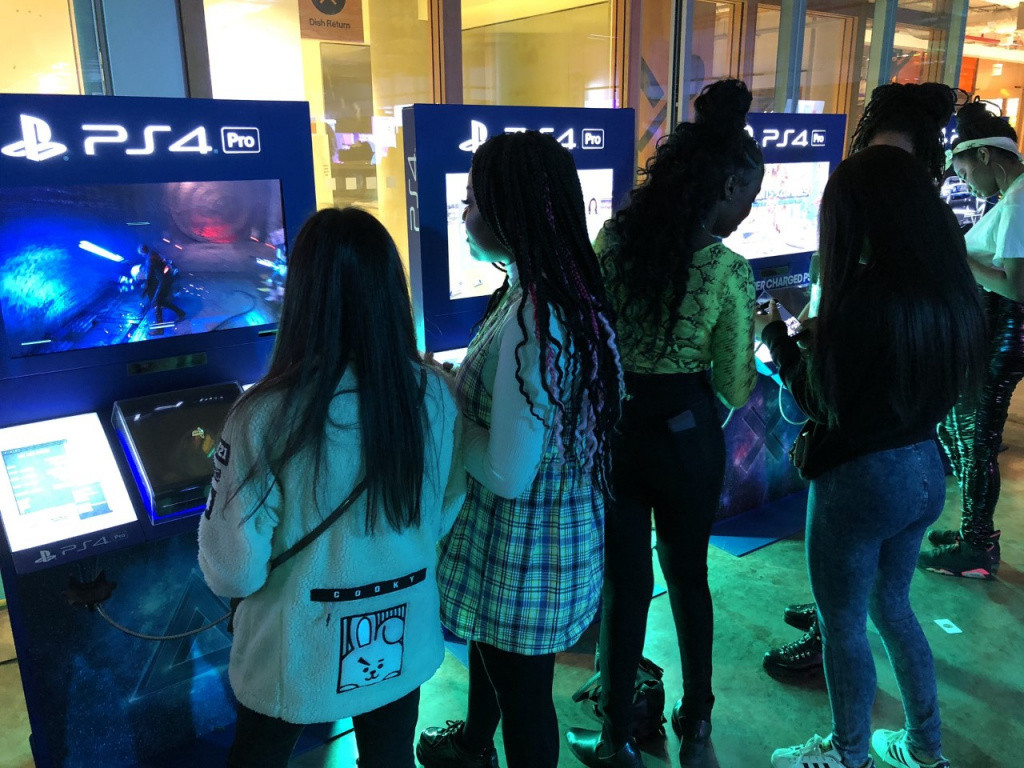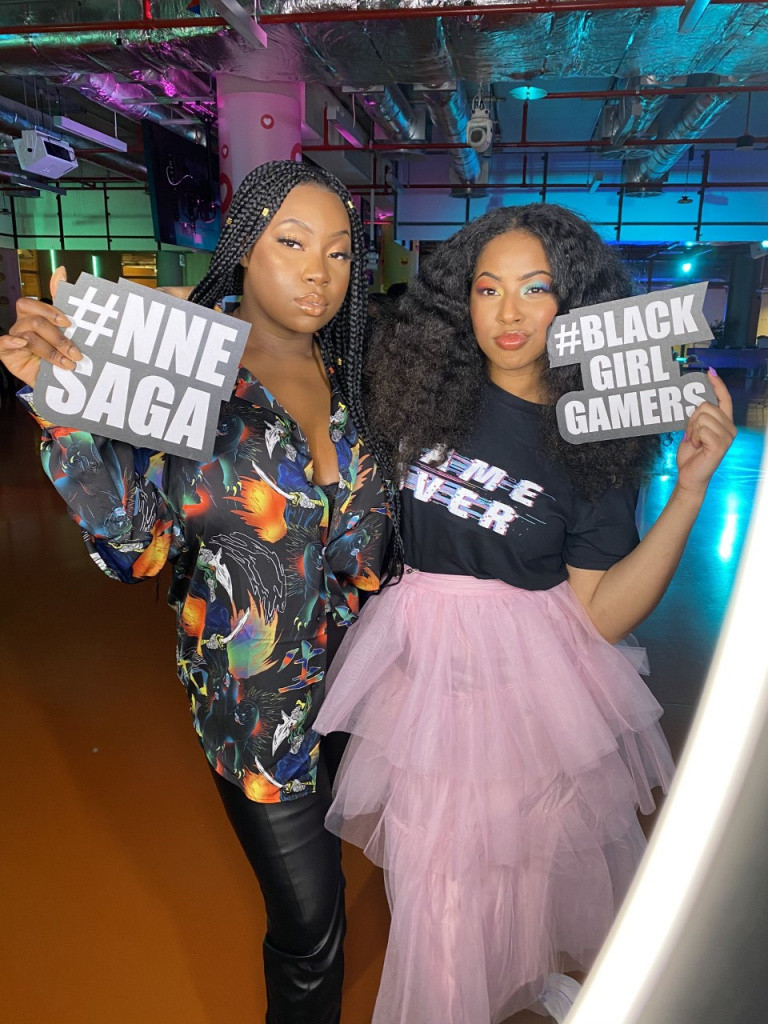
Just a quick glance at attendees for gaming conventions like E3 or Gamescom paints an industry which is predominantly a boys’ club, although this doesn’t reflect who’s playing games around the world today.
In the UK, Ofcom’s Media Use and Attitudes Report published last month revealed gaming online has become an increasingly popular past-time among girls aged 5-15. While the amount of boys playing online games in this age bracket has remained steady at 71%, the percentage of girls has risen from 39% to 48% over the past year.
Not everyone who plays games will be lining up to attend gaming events, but a new collaboration from organisations Black Girl Gamers and Nnesaga is proving the large male turnout might be an off-putting factor for many female gamers.
Founded in 2015, Black Girl Gamers (BGG) was established by Jay-Ann Lopez in response to racism and sexism she received while playing games online. Initially created on Facebook, the group now has a community of 5,600 members worldwide.
The first Gamer Girls Night In took place in January this year (Picture: BBG/Nnesaga)
Nnesaga, founded by Stephanie Ijoma in the same year, was similarly created as a safe space for minority groups – although more broadly for men and women from diverse backgrounds. The two groups came together to create Gamer Girls Night In; an event blending gaming, fashion and beauty aimed at women, non-binary and LGBT communities.
“One of the things we hear is a lot of female gamers feel like they’re alone or isolated in the games industry,” Stephanie told GINX TV. “We wanted to show there are people that are like you.
“There isn’t a space to do that because when you’re having events curated by men and the majority of it is men with a small percentage of women, it’s hard to try and network with other women, because you want to feel like you belong.”
Jay-Ann said: “Part of the reason why I wanted to hold this event is a lot of gaming events you can attend, they’re just curated and built from a male perspective.
“Women can have a different perspective on gaming. Not all the time, but why isn’t there an event solely done from our perspective that marries the things we want as well?”
The first sell-out Gamer Girls Night In took place in London in January this year, where gaming stations for Mario Kart, FIFA, and Super Smash Bros. sat alongside nail booths, smoking cocktail bars, gaming-inspired snacks and a panel with prominent female voices in the industry.
“We tried to make sure everything we did had the foundation of gaming but split across beauty and fashion,” Jay-Ann said. “It works really, really well because women love that, but at the same time it’s a thing where people don’t really think you can mix all three in. We wanted to show people you can.
While the coronavirus outbreak has likely pushed plans back, there’s hopes for even bigger and better Gamer Girls Night In events in the future.
“We had really positive responses,” Jay-Ann added. “People want us to bring it overseas to America and other places because the mix of gaming and beauty in such a seamless way hasn’t been done before.
“It’s why I wanted Stephanie to come on after I initially thought of the idea, because she’s got a really good aesthetic with her brand as well which similarly marries that.”
The “boys’ club” image at events is an issue within the games industry too. While the movie and TV industries have taken strides to give greater representation behind and on-screen in recent years, gaming in comparison has come under far less scrutiny despite carrying similar problems.
Overwatch and the upcoming Valorant are the best recent examples of in-game representation with its international cast of male and female heroes, but Jay-Ann believes there’s a disconnect between developers and the communities they strive to represent.
Stephanie and Jay-Ann at Gamer Girls Night In (Picture: BBG/Nnesaga)
“The representation in games and the representation in the industry are two different things,” Jay-Ann says. “The in-game representation is increasing but the diversification of the workforce is behind other industries.
“Because gaming is a new area, it is the easiest [industry] to make the most changes. There’s a lot of work going on, I just don’t feel like they talk to the communities they’re trying to represent a lot.
“Gaming is such a secret giant in the way it operates. It is one of the most powerful entertainment industries but it’s not as scrutinised as beauty or movies or music – gaming goes quite under the radar, so because of that there’s been less scrutiny on that front.”
There’s reason to be critical too. While there’s been a number of studies to show more women are playing games than ever before, female workers in the games industry only make up roughly 20% of the worldwide proportion.
While there’s likely a number of factors for the disconnect between the amount of women playing games and women employed in the industry, events like Gamer Girls Night In are striving to provide a community platform which could bridge these two areas together.
“We’re the consumers at the end of the day and you’re making a game for us to enjoy,” Stephanie added.
“It’s always good to ask the community… and if we don’t meet in the middle, how are they going to make the games enjoyable if they don’t listen to what people actually want? And it’s not a lot we require, it’s just more representation.”
You can follow Black Girl Gamers and Nnesaga on Twitter for updates about future Gamer Girls Night In events.

